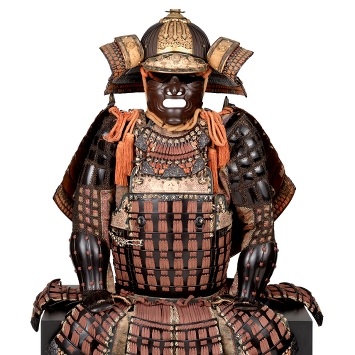Before we lead others, we must take control of our own life. Orienting thoughts, emotions and behaviors with balance and intelligence towards well-being and personal goals: this is the key to success.

Written and verified by the psychologist GetPersonalGrowth.
Last update: 15 November 2021
Self-leadership is the art of intentionally influencing thoughts and emotions. It involves directing all resources, motivation and energy towards an outcome. It is a skill that we can all develop. A tool for success that allows us, above all, to feel good about ourselves in all circumstances.
Let's face it, when we hear the word “leadership”, we almost immediately imagine a figure who inspires a group of people to achieve specific goals. Driving means, first of all, projecting one's influence from the inside out. Well, we often forget that the first step should be to work on one's own internal direction, that is, on self-leadership.
This term is not new; was coined in the 80s by Charles Manz, a lecturer specializing in the area of human behavior at the University of Massachusetts. The term then began to circulate and was consolidated thanks to currents of thought along the line of emotional intelligence.
On the other hand, although this concept is particularly useful in the field of business and human resources, it directly affects the psychological health of the individual. Leading ourselves means guiding our destiny towards happiness. An area of personal growth that integrates exceptional dimensions for human well-being.
"Controlling others is strength, controlling yourself is real power."
-Lao Tzu-
What does self-leadership consist of?
The concept of self-leadership emerged over four decades ago for a very specific reason. During the training or orientation of a person in the field of leadership, the most important area of all has often been overlooked.
No person can be a good leader if he does not first deepen his knowledge of himself, if he does not master the art of good emotional management and if he is unable to guide his behavior towards the desired goals.
Neglecting these areas is synonymous with failure to manage human groups. How can we lead, or inspire, a group of people towards specific goals if we don't know how to manage ourselves? Socrates pointed out that no one can be a good teacher without first knowing himself. Nobody will be able to influence others if they are not first able to be a daily guide for their inner being.
Nowadays research on this self-influence appears with increasing frequency. A study conducted at the University of Arizona investigated the variability of this dimension between cultures. On the other hand, books like Self-Leadership: how to become a more successful, efficient, and effective leader from the inside out, by Professors Andrew Bryant and Ana Kazan, offer us the tools to do so.
I know who I am: self-knowledge
Benjamin Franklin pointed out that there are three extremely hard things: steel, a diamond and knowing yourself. Effectively, few areas are as complicated as knowing your universe and knowing what it's made of. It involves recognizing your limitations and weaknesses.
Also explore your potential, navigate your needs and frame who we are and where we are going. This is the real pillar of self-leadership, knowing yourself in all respects, in an authentic way.
Intention: what do I want to achieve?
What do you ask of life? What do you ask of yourself? The intention is above all to project oneself towards a life purpose and work to achieve it. Without a "why?" there will be no "for what purpose?"; without a reason, any effort will be meaningless. Humans, let's not forget, need to give meaning to guide their ideas and energies towards any goal.
Self Awareness: What Happens Inside of Me?
Self-awareness is an indispensable cornerstone for self-leadership. This dimension allows us to become aware of our relationship with the world, how emotions affect mood and, consequently, decisions and behavior.
Improving and training self-awareness awakens the ability to look within with wisdom to read, understand and regulate every mechanism.
Self-efficacy in self-leadership: I know my worth and I can do it
Self-efficacy is a concept of great interest and value, coined by the psychologist Albert Bandura. It defines the perception that each of us has of our ability to do something correctly and effectively.
Self-leadership needs this concept, to be aware that, no matter what happens, we will have the resources to face and solve it. Feeling capable of facing many of the challenges we face will give us confidence, temperance and motivation.
Self-management: a disciplined mind
The ability to create habits, routines and proper time management to achieve daily goals. Competence in creative problem solving.
Knowing how to react to each situation independently without depending on others, without waiting for others to save us in every situation and circumstance. All of these concepts outline another area of great importance in self-leadership: self-management.
Conclusions on self-leadership
Self-leadership is a valuable tool in which we should all invest time and effort. Know ourselves, what we can do and what we want to achieve allows us to harmonize our emotions and our behaviors to make all our dreams come true. And how could we back out?
"I am the master of my destiny: I am the captain of my soul".
-William Ernest Henley-


























